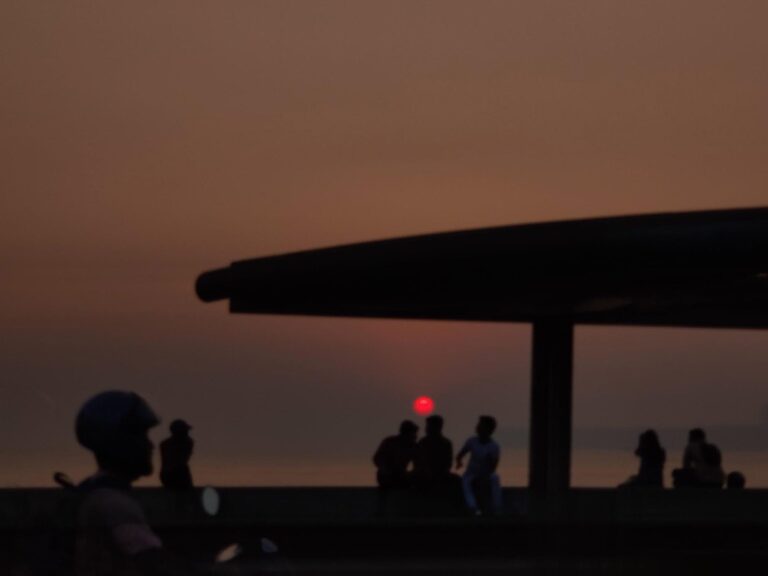Coping with the givens of adulthood: a pandemic in my 20’s (Part III)
Part 3: The Silly thing about love
We were talking about stories last time; some old, some rusty and some new. Today I want to introduce you to the characters of my story. I am an atypical person in many ways and I am not necessarily proud of that. I live in a building of Marathi speaking families in a studio apartment, alone. Both my decision and my parents’ consensus to it were unsurprising. Truth be told, I had considered no alternatives.
However, at the peak of my panic, I had packed three sets of clothes- one for the airport, one for buying groceries and one for sleeping- and moved in with someone who lived five minutes away. I truly believed that it was going to be a matter of days before I moved back into my house or at least flew back home. We’ll call this someone ‘W’, who I had been seeing for a short period of time before the pandemic took us down.
W lived in a modest apartment by himself, as do I. He drinks his coffee black, with no sugar, and I like mine sweet, with a spoonful of milk. He is a devout, church-going Christian, and I am a skeptic. But he and I prefer quieter corners in crowded rooms. And we agree on the same kind of tea- milky and with some ginger.
In short, we’d make the cut to a very unremarkable John Green book. So when he opened that door for me, unlike the other times before, a feeling of weariness grew on me, as if the waxy weight on my shoulders had melted. I know that there are obvious merits to companionship and social support. But I cannot begin to describe how quickly my shoulders slackened in relief, and what a physical difference a person’s mere presence made. However, I also rightfully expected the romantic dreaminess to die a quick death.
When the first Covid-19 case was detected in Maharashtra in the first week of March 2020, some people had, and rightfully so, expressed severe concerns. We’re a state hosting 12.6 crore (126 million) people and the first essential lesson for survival is- come hail or storm (literally), we continue to move. So we were aware of the catastrophe it could cause. But despite considering myself a realist who leans more towards pessimism, my brain was tired of apprehending that possibility. At this point in time, there were still people claiming that the media was capitalizing on the situation and terrorizing the masses. Slowly, but visibly, the population on the roads started dwindling.
I took note of it but I wasn’t complaining. In fact, when consequently the road congestion decreased, I even found it refreshing. But soon, the government started sealing malls and restaurants. Housing societies installed wash basins at the entrances. More people started wearing masks and gloves, and consciously veering away from others on the road. Millions of eyes witnessed, day after day, Covid-19 statistics slithering upwards in red on their screens. By the time the Prime Minister called for a 12 hour nationwide curfew on the 22nd of March 2020, the roads were completely empty. The old lady who sold me vada pao had shut shop, and my neighbors had left for their parents’.
People often conclude that I am an extrovert. In fact, my entire adolescent life, I have called myself one. But when the sun sets and all I care about is the Popsicle -shaded sky, I want to open the door to a room full of my own time and disrobe any need to be refined. A theory in Psychology proposes how in the absence of positive social recognition like smiles, hugs and words of praise, people are still wired to look for other kinds of social recognition, however negative they may be.
In short, the absence of any social recognition is more debilitating than the negative kind. Therefore, while I appreciated every precaution undertaken, the lesser I saw an unmasked human face, the more scared I got and the stiffer I became. We’ve been imitating and reflecting human facial expression from the moment we recognized one as infants. But seeing W’s unmasked smile that morning was the first time that I will remember mirroring one.
As W and I grew comfortable sharing space, the numbers continued to rise and dates, days, weeks and months lost their eminence. Every successive day was its predecessor’s competitor. Nameless, like diabolic relatives, they were all designated with “Highest single-day spike in cases”. In the first few weeks, W and I were a dedicated audience to this incredibly unexpected time in our lives.
Some days, I would break down from the uncertainty, and consider moving back to my house. And on others, W and I would sit across from each other with two tanned cups of tea, and he would sneakily sip the last gulp from mine. What W kept modest in terms of loudness, I made up with my pitch. While he cooked delectable food, I introduced him to Indian cinema and music.
With no discrete goal in mind, we continued to distract ourselves with anything that stopped us from following the news. By the end of the first fortnight, two sets of my clothes had occupied his cupboard and he continued to steal my tea.
One evening, when W was attending church online, he kept the phone on speaker and closed his eyes, while I sat with my phone in the corner. A part of me thinks that that was his third attempt at explaining why he continues to have faith despite circumstances. During the session, people were asked to share their experiences of attending church online.
Instinctively, everyone started talking about things that they were grateful about: people to speak with, a congregation of like-minded individuals, a routine stolen amidst chaos, among other things. Maybe it is my need to critically inspect everything, but I wouldn’t have immediately associated ‘sharing experiences’ with ‘expressing gratitude’. And maybe it is this exact quality that led me from surprise to excitement because the next thing I did was message my friend Garima, proposing a study on gratitude.
That brings me to the next character of my story. Garima and I pursued an honors degree in Psychology from the same college in New Delhi. In the first two years of college, our trajectories were two parallel lines, and the probability of the two intersecting was bleak.
Even if the two of us separately counted the number of times we interacted, we wouldn’t need more than two hands. Then, in a curious turn of events, we started spending more time together. At the time, the two of us were going through our respective traumatizing heartbreaks.
Now again, what do seemingly practical, and self-reliant young adults do when their world is falling apart? They rationalize, and/or turn their stories into episodes pinched off a satirical comedy. In this case, we engaged in the latter.

I never put my mind to it, but now that I do, the friendship thrived and grew organically. Initially, what may have brought us closer were believing in the same ideas of living. You see, at different stages of our lives, the basis of companionship changes. If at age nine, my best friend and I spent time together because both of us liked watching the Power Puff girls, at nineteen, I may no longer choose to maintain that proximity because she believes that the world is flat.
Despite the similarity of our worlds, Garima and I chose different names for the things that constituted them. Where I saw failure, she saw an opportunity and where she saw vulnerability, I saw genuineness. During another devastating heartbreak after college, I picked up the phone and dialed her number. Without rationalizing or laughing at myself, I wept and wept and wept
I continued to grieve for months, and she didn’t sift through the book of comforting words to quieten me. Once, I brought up a matter that I wasn’t sure she was comfortable discussing. But when she spoke, she let herself grieve and I didn’t lecture her on an alternate approach to that situation. It doesn’t take philosophy to tell you that we are perceptually different people.
We do not speak every day of the week. But on days when I need her, I know which phone number to look for. When the lock down was announced, she put on her best-loved avatar as a parent and made a list of things I must stow away. When our days rolled into months and everything was uncertain, we chose to appreciate the rareness of the ordinary together.
On other days, we chose to spend that time in silence, and respected that choice. Most people I know, myself included, paint a very similar picture of what love looks like. The first nod is always euphoria, accompanied by an extraordinary feeling of uniqueness. This is followed by smiling at the thought of loved ones, giddiness in the stomach and excitement in their company. I am not going to be sardonic about this because I am an occasional Romantic, and because it’s true.
Love can look like that. It can look like unending conversations, but also mellow, comfortable silences. It can sound like music on the piano, but also vernacular you picked up from each other. It can be being swept off your feet, but also the comfort with which you can slip out of your perfection. It can be a partner to share a meal with, but it can also be a friend to share a cup of badly brewed coffee with.
The pandemic did not change the characters of my story, but it made me reach out to them. In a way, you could say that I raised my arms and I asked for love. This is not to say that I won’t prefer having some time only for myself. Therefore, as I mentioned, the dreaminess did die.
But just like that, at the end of the first month, I had started leaving the last sip of my tea for W. And just like that, through silences, tears and laughter, Garima and I continue to build a friendship that can house two separate, comfortable rooms.
To be continued…


